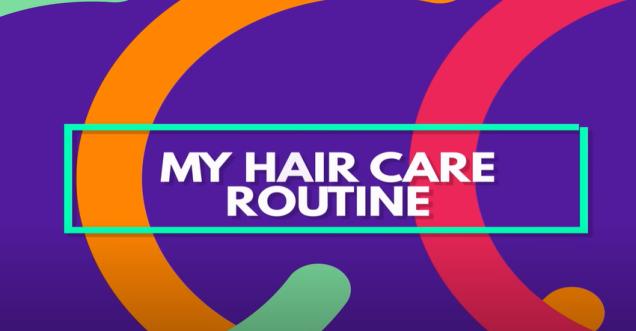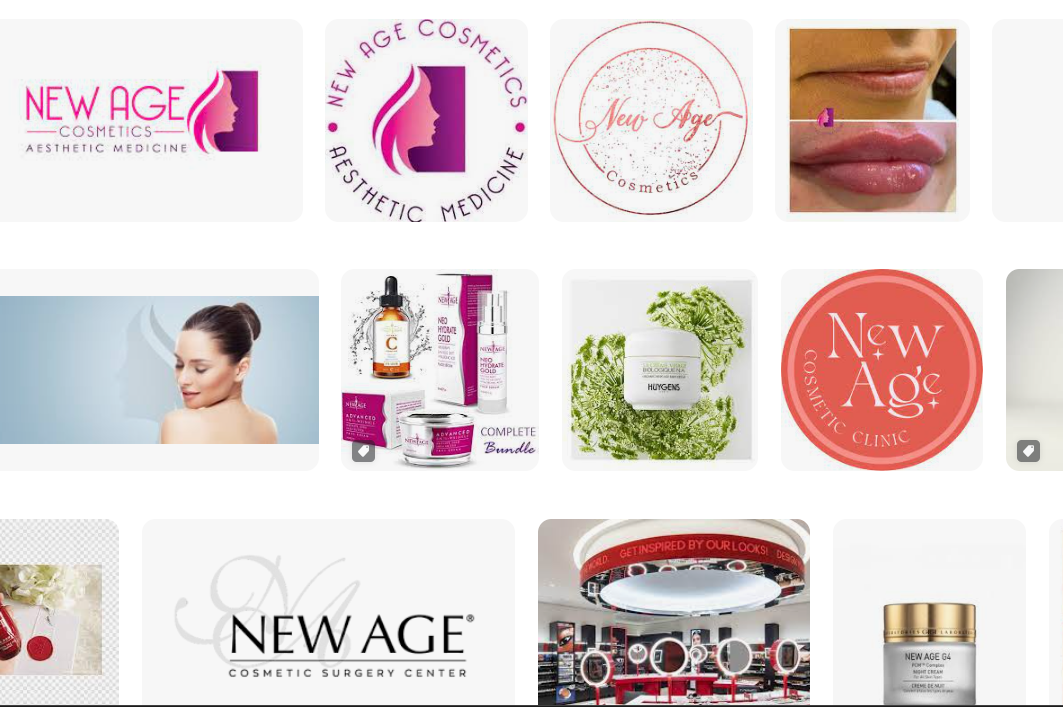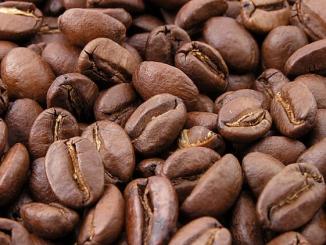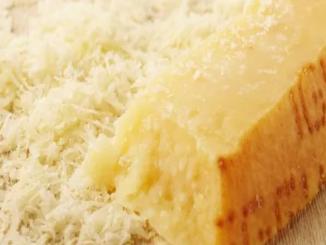
Skin & Hair Secrets for Indian Men and Women
Caring for your skin and hair can vary depending on individual factors such as skin type, hair type, and environmental conditions. Indian bodies come in diverse skin tones and hair textures, so it's essential to tailor your skincare and haircare routines to your specific needs. Here are some general skin and hair care tips that may be helpful for Indian individuals:
Skin Care Secrets for Indian Skin:
1. Know Your Skin Type: Determine whether you have oily, dry, combination, or sensitive skin. Your skincare routine should be tailored to your specific skin type.
2. Cleansing: Use a gentle cleanser suitable for your skin type to remove dirt, oil, and makeup. Cleansing should be done twice daily, in the morning and before bedtime.
3. Exfoliation: Exfoliate your skin regularly (1-3 times a week) to remove dead skin cells and promote cell turnover. Be cautious not to over-exfoliate, as it can lead to irritation.
4. Moisturize: Regardless of your skin type, moisturizing is essential to maintain skin hydration. Use a moisturizer that suits your skin type and includes sunscreen during the day.
5. Sun Protection: Indian skin is prone to pigmentation and sun damage. Apply a broad-spectrum sunscreen with at least SPF 30 daily, even on cloudy days.
6. Treat Hyperpigmentation: To address issues like dark spots and melasma, consider using products containing ingredients like niacinamide, vitamin C, or alpha hydroxy acids (AHAs).
7. Hydrate: Drink plenty of water to keep your skin hydrated from the inside out.
8. Diet: A balanced diet rich in fruits, vegetables, and antioxidants can benefit your skin's health.
Hair Care Secrets for Indian Hair:
1. Determine Your Hair Type: Identify your hair type (straight, wavy, curly, coily) and its unique needs.
2. Shampoo and Conditioner: Choose a sulfate-free shampoo and a conditioner that suits your hair type. Avoid overwashing, as it can strip natural oils from your hair.
3. Oil Massage: Regularly massage your scalp with natural oils like coconut, almond, or castor oil to nourish your hair and improve circulation.
4. Hair Masks: Use hair masks or deep-conditioning treatments to repair and moisturize your hair.
5. Avoid Heat Styling: Excessive use of heat-styling tools can damage your hair. If you use them, apply a heat protectant and use the lowest heat setting necessary.
6. Trim Regularly: Trim split ends regularly to maintain healthy hair growth.
7. Protective Hairstyles: Consider protective hairstyles like braids or buns to minimize damage from environmental factors.
8. Diet and Hydration: A balanced diet of protein, vitamins, and minerals contributes to healthy hair. Staying hydrated is also essential.
9. Avoid Tight Hairstyles: Tight hairstyles like tight ponytails or braids can lead to hair breakage and scalp stress.
10. Reduce Stress: High-stress levels can contribute to hair loss—practice stress management techniques like meditation and yoga.
Additionally, there are many ancient and modern secrets for Indian skin and hair that you can try. Here are some of the most popular ones:
• Neem: Neem is a natural antiseptic and anti-inflammatory agent that can help with acne, infections, and wounds. You can use neem leaves, oil, or powder to make a paste and apply it on your skin or hair overnight. Rinse it off in the morning and see the difference.
• Saffron: Saffron is a luxurious spice that can enhance your complexion and glow. You can soak a few strands of saffron in milk or water and apply it on your face with a cotton ball. Leave it on for 15 minutes and wash it off with cold water.
• Honey: Honey is a natural moisturizer and humectant that hydrates and nourishes your skin and hair. You can use honey as a face mask, a hair conditioner, or a lip balm. Honey can also help with acne, scars, and infections due to its antibacterial properties1.
• Amla: Amla or Indian gooseberry is a rich source of vitamin C and antioxidants that can strengthen your hair and prevent premature greying. You can massage your scalp and hair with amla juice, oil, or powder. Leave it on for an hour and wash it off with a mild shampoo.
• Multani mitti: Multani mitti, or Fuller's earth, is a clay that can absorb excess oil and dirt from your skin and hair. It can also help with pimples, blackheads, and blemishes. Mix multani mitti with rose water, yoghurt, or lemon juice to make a face pack or a hair mask1.
• Turmeric: Turmeric is a spice that can brighten your skin tone and fight inflammation. It can also help with acne, scars, and pigmentation. Mix turmeric with milk, honey, or gram flour to make a paste and apply it to your face or body. Leave it on for 10 minutes and wash it off with warm water.
• Lemon juice: Lemon juice is a natural bleaching agent that can lighten your hair colour and remove dandruff. It can also help with oily skin, acne, and dark spots. You can use lemon juice as a rinse for your hair or as a toner for your skin. Dilute it with water before using it to avoid irritation1.
• Curd: Curd or yoghurt is a dairy product that nourishes and conditions your hair and skin. It can also help with dandruff, frizz, and dryness. You can use curd as a hair mask or a face mask by adding honey, banana, or oatmeal to it1.
These are some of the skin and hair secrets for Indian bodies that you can try at home. For more information, you can watch these videos234 or read these articles. I hope you find them helpful and enjoy them 😊
Adult Acne, skin problems and their causes
Adult acne and skin problems can be frustrating and affect individuals of various ages and skin types. Understanding the causes and factors of these issues can help manage and treat them effectively. Here are some common causes of adult acne and skin problems:
1. Hormonal Fluctuations:
· Hormonal changes, such as during menstruation, pregnancy, menopause, or using certain birth control methods, can lead to acne flare-ups in adults.
· Conditions like polycystic ovarian syndrome (PCOS) can disrupt hormonal balance and contribute to acne.
2. Excess Sebum Production:
· Overproduction of sebum (skin oil) can clog pores and lead to acne. This can be influenced by genetics, hormonal fluctuations, and even certain skincare products.
3. Clogged Pores and Follicles:
· The accumulation of dead skin cells, dirt, and debris can clog pores and hair follicles, leading to blackheads, whiteheads, and acne.
· This can be exacerbated by not cleansing the skin properly or using pore-clogging cosmetics.
4. Bacterial Infection:
· The bacterium Propionibacterium acnes (P. acnes) naturally resides on the skin but can multiply and contribute to acne when pores are clogged.
5. Inflammation:
· Inflammation plays a significant role in acne and other skin conditions. Stress, dietary choices, and skin irritation can trigger it.
6. Diet:
· Some studies suggest that a high glycemic index diet, dairy products, and certain foods with a high sugar or fat content may exacerbate acne in some individuals.
7. Medications:
· Certain medications, including corticosteroids, lithium, and some antiepileptic drugs, can cause acne as a side effect.
8. Stress:
· High stress levels can lead to hormonal fluctuations and increased sebum production, potentially worsening acne and other skin conditions.
9. Skincare Products:
· Using the wrong skincare products for your skin type or products that contain pore-clogging ingredients can lead to skin problems, including acne.
10. Environmental Factors: - Exposure to pollutants, humidity, and other environmental factors can contribute to skin problems by clogging pores or causing skin irritation.
11. Genetics: - A family history of acne or skin conditions can increase your susceptibility to these issues.
12. Irritation and Allergies: - Harsh skincare routines, excessive exfoliation, or contact with allergens can lead to skin irritation and conditions like contact dermatitis.
13. Lifestyle Habits: - Smoking and excessive alcohol consumption can negatively impact skin health and exacerbate skin problems.
14. Underlying Medical Conditions: - Certain medical conditions, such as rosacea, eczema, or autoimmune disorders, can affect the skin and cause skin problems.
Managing and treating adult acne and skin problems often involves a combination of lifestyle adjustments, proper skin care, and, in some cases, medical interventions. It's essential to consult with a dermatologist or healthcare professional for a personalized diagnosis and treatment plan tailored to your specific skin condition and needs.
New age cosmetics
New-age cosmetics refer to a range of cosmetic products and practices that have gained popularity recently, often incorporating advanced technology, innovative ingredients, and sustainability considerations. These cosmetics aim to meet the evolving needs and preferences of consumers who are increasingly conscious of the ingredients they apply to their skin, as well as the environmental impact of the beauty industry.

Here are some key aspects of new-age cosmetics:
1. Clean and Natural Ingredients: Many consumers seek cosmetics formulated with clean and natural ingredients. This includes products free from harmful chemicals, parabens, sulfates, and artificial fragrances. Natural and organic ingredients, such as botanical extracts and plant-based oils, are often preferred.
2. Cruelty-Free and Vegan: New-age cosmetics often emphasize ethical and sustainable practices, including cruelty-free and vegan. Brands are increasingly opting for cruelty-free testing methods and avoiding animal-derived ingredients.
3. Advanced Skincare Technology: New-age cosmetics often integrate advanced skincare technology, such as nanotechnology and biotechnology, to create products with enhanced effectiveness and targeted results. This may include products like serums, peptides, and DNA-based skincare.
4. Customization: Personalized skincare is a growing trend in new-age cosmetics. Brands offer products tailored to individual skin types, concerns, and preferences. This may involve online skin assessments or consultations with experts.
5. Eco-Friendly Packaging: Sustainability is a significant focus in new-age cosmetics. To minimize environmental impact, brands opt for eco-friendly packaging materials, reduced plastic usage, and recyclable or refillable containers.
6. Transparency and Traceability: Consumers are increasingly interested in knowing where their cosmetic ingredients come from. Brands that emphasize transparency and traceability of their sourcing and supply chain are gaining favour.
7. Digital Beauty: Augmented reality (AR) and virtual try-on technologies are becoming more common, allowing customers to test products before purchasing virtually. Online tutorials and AI-driven skincare analysis are also part of the digital beauty experience.
8. CBD-Infused Products: Cannabidiol (CBD) has gained popularity in skincare and cosmetics due to its potential anti-inflammatory and calming properties. CBD-infused products are often found in new-age cosmetics.
9. Sustainability and Eco-Friendly Practices: Brands are increasingly committed to sustainable and eco-friendly practices, including using renewable energy sources, reducing waste, and supporting fair trade initiatives.
10. Inclusive Beauty: The new-age cosmetics industry is moving toward greater inclusivity, offering a more comprehensive range of shades for different skin tones and addressing the needs of diverse demographics.
11. Holistic Beauty: A holistic approach to beauty involves addressing not only external skincare but also factors like nutrition, stress management, and mental well-being, recognizing that these factors impact skin health.
12. Microbiome Skincare: Research on the skin's microbiome has led to the development of products that aim to balance and support the natural microorganisms on the skin.
These trends reflect a growing awareness among consumers about the impact of cosmetics on their skin and the environment. As the beauty industry evolves, new-age cosmetics innovate and cater to beauty-conscious individuals' changing preferences and concerns.
Hair secrets of Kerala people
Kerala, a state in southern India, is known for its lush greenery, natural beauty, and diverse culture. Kerala people have hair care secrets and practices like individuals from other regions. The following are some of the traditional hair care practices that are commonly associated with Kerala:
1. Coconut Oil Massage: Coconut oil is a staple in Kerala's hair care routine. It is applied generously to the hair and scalp, often left on for an extended period, and then washed out. Coconut oil nourishes the hair, promotes growth, and adds shine.
2. Herbal Hair Oils: Kerala is famous for its herbal hair oils. These oils are often made by infusing coconut oil with various herbs, such as amla (Indian gooseberry), hibiscus, curry leaves, and Brahmi. Each herb is believed to have specific benefits for hair health.
3. Natural Shampoos: Traditional Kerala shampoos are often made from natural ingredients like shikakai (a natural cleanser), soapnuts (reetha), and hibiscus leaves. These natural cleansers are considered gentler on the hair and scalp.
4. Henna: Henna, or mehndi, is used to condition and colour the hair. It is believed to strengthen the hair, add shine, and provide a natural reddish-brown tint.
5. Traditional Combs: Kerala people often use wooden combs, such as neem wood or sandalwood combs. These are believed to be gentler on the hair and scalp than plastic combs.
6. Aromatic Flower Bath: Kerala women traditionally adorn their hair with fresh flowers, especially jasmine. This practice not only adds fragrance but is also considered a natural way to maintain hair health.
7. Avoiding Harsh Chemicals: Kerala's hair care traditions often involve avoiding harsh chemical treatments and products that can damage the hair.
8. Diet: A diet rich in coconut, curry leaves, and other regional ingredients is believed to contribute to healthy hair. Nutrition plays a vital role in overall hair health.
9. Ayurvedic Treatments: Kerala has a strong tradition of Ayurveda, and Ayurvedic treatments for hair health are common. Ayurvedic practitioners may recommend specific herbal remedies and treatments tailored to an individual's hair type and concerns.
10. Protective Styles: Traditional Kerala hairstyles, like the "Jada" or long braid, help protect the hair from environmental damage. Braiding the hair is a common practice among both men and women.
It's important to note that while these traditional practices are valued for their natural and holistic approach to hair care, individual results may vary. People should choose hair care routines that best suit their hair type, concerns, and preferences. Additionally, modern hair care products and practices are widely used in Kerala, as in other parts of the world, reflecting the diversity of choices available to individuals for maintaining healthy and beautiful hair.
Purification treatments
Purification treatments, often associated with wellness and holistic health practices, aim to cleanse and detoxify the body, mind, or spirit. These treatments are based on the belief that eliminating toxins and impurities can improve health and well-being. Various cultures and traditions have their purification rituals and therapies. Here are some common purification treatments and practices:
1. Detox diets involve consuming specific foods, drinks, or supplements for a limited period to eliminate toxins from the body. Standard components may include fresh fruits, vegetables, herbal teas, and water.
2. Fasting: Fasting involves abstaining from food or specific types of food for a designated period. Intermittent fasting, juice fasting, and water fasting are some variations. Fasting is believed to help the body cleanse and reset.
3. Colon Cleansing: This procedure involves flushing the colon with water or other liquids to remove waste and toxins. It is a controversial practice and should be done under medical supervision.
4. Sauna and Steam Baths: Sweating through saunas or steam baths is thought to help the body eliminate toxins through the skin. These treatments can also promote relaxation and relieve stress.
5. Yoga and Meditation: Yoga and meditation practices are believed to purify the mind and spirit. They encourage mindfulness, stress reduction, and emotional cleansing.
6. Ayurvedic Panchakarma: Panchakarma is a traditional Ayurvedic detoxification and rejuvenation therapy that includes practices like oil massages, herbal steam baths, and cleansing enemas.
7. Chinese Medicine Detox: Traditional Chinese medicine includes detoxification methods such as acupuncture, cupping therapy, and herbal remedies to balance the body's energies and remove blockages.
8. Sweat Lodges: Indigenous cultures often use sweat lodges or similar ceremonies to purify the body and spirit through intense sweating and ceremonial practices.
9. Ionic Foot Detox: This controversial treatment involves placing feet in an ionic foot bath, which is said to draw out toxins from the body through the feet.
10. Spiritual Cleansing: Many cultures and religions have rituals for spiritual cleansing, often involving prayers smudging with herbs like sage or holy water.
11. Dietary Cleansing: Some people choose to cleanse their diet by eliminating processed foods, caffeine, alcohol, and sugar for a period to support overall health.
12. Environmental Detox: Reducing exposure to environmental toxins and pollutants, such as reducing plastic use or switching to natural cleaning products, is considered a form of detoxification.
It's essential to approach purification treatments cautiously and consider the guidance of qualified healthcare professionals or practitioners, especially for more intensive practices like fasting or colon cleansing. The effectiveness and safety of these treatments can vary, and individual needs and conditions should be considered. Maintaining a balanced and healthy lifestyle, including a nutritious diet and regular exercise, is essential for overall well-being and may reduce the need for extreme purification treatments.
Haircare basics explained
Haircare is essential to personal grooming and can help keep your hair healthy, manageable, and looking its best. Here are some haircare basics explained:
1. Washing Your Hair:
· Frequency: How often you should wash your hair depends on your hair type. Generally, it's recommended to wash it every 2-3 days for most hair types, but it can vary.
· Shampoo and Conditioner: Use a shampoo suitable for your hair type (e.g., hydrating, volumizing, or colour-safe) and a conditioner to keep your hair moisturized and manageable. Apply shampoo to the scalp, roots and conditioner to the mid-lengths and ends.
· Rinse Thoroughly: Rinse your hair thoroughly to remove all product residue.
2. Hair Type:
· Understanding your hair type (e.g., straight, wavy, curly, or coily) is essential for choosing the right products and styling techniques.
3. Heat Styling:
· To prevent damage, Limit heat styling tools like hairdryers, curling irons, and straighteners. If you use them, apply a heat protectant spray before styling.
4. Haircuts:
· Regular trims are essential to maintain healthy hair and prevent split ends. The frequency of trims varies, but every 6-8 weeks is a standard guideline.
5. Brushing and Combing:
· Use a wide-tooth comb for detangling wet hair to prevent breakage. Brush dry hair gently to avoid damage, starting from the ends and working your way up.
6. Scalp Care:
· A healthy scalp is crucial for healthy hair. Keep your scalp clean and moisturized. Avoid scratching or using sharp objects on your scalp to prevent irritation.
7. Avoid Tight Hairstyles:
· Styles that pull on the hair, such as tight ponytails or braids, can lead to breakage and hair loss. Opt for loose hairstyles when possible.
8. Hair Masks and Treatments:
· Use hair masks or treatments once weekly to nourish and repair your hair. Look for products with ingredients that target your specific concerns.
9. Nutrition:
· A balanced diet with essential vitamins and minerals, such as biotin, iron, and omega-3 fatty acids, can support healthy hair growth.
10. Avoid Overwashing: - Washing your hair too frequently can strip it of natural oils, leading to dryness and damage. Follow a washing schedule that suits your hair type.
11. Protect Your Hair from the Sun: - Prolonged sun exposure can damage your hair. Wear a hat or use a hair product with UV protection when spending time in the Sun.
12. Use the Right Hair Accessories: - Use hair ties that are gentle on your hair, such as fabric scrunchies, to avoid breakage.
13. Avoid Excessive Chemical Treatments: - Limit harsh chemical treatments like perms, relaxers, and bleaching, as they can weaken the hair structure.
14. Avoid Excessive Coloring: - Frequent hair colouring can damage your hair. Consider semi-permanent or temporary dyes for less commitment and damage.
15. Stay Hydrated: - Drinking enough water is essential for overall health, including the health of your hair.
Remember that everyone's hair is unique, and what works for one person may not work for another. Experiment with different products and routines to find what suits your hair type and concerns best. If you have specific hair or scalp issues, consult a professional hairstylist or dermatologist for personalized advice and treatment options.
Importance of nutrition for skin and hair
Nutrition plays a crucial role in maintaining the health and appearance of both skin and hair. What you eat directly impacts the condition of these tissues, and a well-balanced diet can contribute to healthy, radiant skin and strong, shiny hair. Here's why nutrition is essential for skin and hair health:
For Skin:
1. Collagen Production: Collagen, a protein that provides structural support to the skin, requires synthesizing vitamin C. A diet rich in vitamin C (found in citrus fruits, strawberries, and bell peppers) can help maintain skin elasticity.
2. Hydration: Adequate water intake is vital for skin hydration. Dehydrated skin can appear dry, flaky, and dull. Drinking enough water helps keep the skin plump and glowing.
3. Protection from UV Damage: Antioxidants like vitamins A, C, and E can help protect the skin from UV damage and free radicals. Foods like carrots, sweet potatoes, and spinach are rich in these vitamins.
4. Inflammation Control: Omega-3 fatty acids found in fatty fish (salmon, mackerel), walnuts, and flaxseeds have anti-inflammatory properties that can help reduce redness and inflammation in the skin.
5. Wound Healing: Protein is essential for the repair and regeneration of skin cells. A diet with adequate protein (lean meats, poultry, beans, and legumes) can support the healing of wounds and blemishes.
6. Skin Moisture: Healthy fats, such as those found in avocados, nuts, and olive oil, help maintain the skin's lipid barrier, preventing moisture loss and dryness.
7. Antioxidant Protection: Antioxidant-rich foods like berries, green tea, and dark chocolate can neutralize free radicals, contributing to premature ageing and skin damage.
For Hair:
1. Protein: Hair is primarily made of a protein called keratin. Adequate protein intake from lean meat, fish, eggs, and dairy sources is essential for strong and healthy hair.
2. Iron: Iron deficiency can lead to hair loss. Incorporating iron-rich foods like lean red meat, beans, and leafy greens into your diet can help prevent this.
3. Biotin: Biotin, a B vitamin, is crucial for hair health. It's found in foods like eggs, nuts, and whole grains. Biotin supplements are also available.
4. Vitamins and Minerals: Vitamins A, C, D, and E, as well as minerals like zinc and selenium, contribute to hair growth and health. A well-rounded diet with plenty of fruits and vegetables can provide these nutrients.
5. Omega-3 Fatty Acids: Omega-3s in fatty fish, walnuts, and chia seeds can help keep the scalp and hair follicles healthy.
6. Scalp Health: A balanced diet promotes a healthy scalp, crucial for healthy hair growth. A healthy scalp is less prone to dandruff and other scalp conditions.
7. Hydration: As with skin, staying hydrated is vital for maintaining the moisture balance in the hair and preventing dryness and brittleness.
8. Blood Circulation: Proper nutrition supports good circulation, ensuring hair follicles receive adequate nutrients and oxygen.
Overall, a well-balanced diet that includes a variety of nutrients is essential for promoting healthy skin and hair. Also, poor nutrition can lead to various skin and hair issues, so making mindful choices about your diet can significantly impact your overall appearance and well-being. If you have specific concerns or conditions related to your skin or hair, consider consulting with a healthcare professional or dermatologist for personalized guidance and treatment options.
Ayurvedic psychiatry for hair and skin
Ayurvedic medicine, an ancient holistic healing system from India, offers principles and practices for maintaining and improving hair and skin health. In Ayurveda, hair and skin health is considered an integral part of overall well-being, and imbalances in the body's doshas (Vata, Pitta, and Kapha) can manifest as issues in these areas. Here are some Ayurvedic principles and practices for hair and skin care:
For Hair Care:
1. Dietary Considerations: Ayurveda emphasizes the importance of a balanced diet to nourish hair from the inside. Foods rich in iron, protein, and vitamins (such as vitamins A, C, and E) are encouraged for healthy hair.
2. Scalp Massage: Regular oil massage of the scalp is a fundamental practice. Choose an Ayurvedic oil like coconut, sesame, or Brahmi. Massaging the scalp promotes blood circulation, strengthens hair roots, and relieves stress.
3. Herbal Shampoos and Conditioners: Ayurvedic herbs like Shikakai, Reetha, and Amla make natural, gentle hair cleansers. They are believed to help maintain hair's natural shine and strength.
4. Ayurvedic Hair Packs: Herbal hair packs or masks made from ingredients like henna, Brahmi, and Neem can be used to promote hair growth, reduce dandruff, and add lustre.
5. Dietary Supplements: To address specific hair concerns, ayurvedic practitioners may recommend herbs and supplements like Bhringraj, Amla, and Ashwagandha.
6. Lifestyle and Stress Management: Ayurveda recognizes the impact of stress on hair health. Practices like yoga, meditation, and relaxation techniques are encouraged to manage stress.
For Skin Care:
1. Dietary Choices: Eating a balanced diet that supports your dominant dosha is key. For example, Pitta-dominant individuals may avoid spicy and oily foods to prevent skin inflammation.
2. Daily Cleansing: Ayurvedic skincare emphasizes using gentle, natural cleansers like rose water or a mixture of chickpea flour and milk to cleanse the skin.
3. Moisturization: Ayurveda recommends oils like coconut or almond oil for moisturizing. Applying oils to the skin (abhyanga) can help balance the doshas and nourish the skin.
4. Herbal Face Masks: Ayurvedic herbs like Turmeric, Sandalwood, and Neem are used in face masks to address various skin issues, from acne to dryness.
5. Detoxification: Panchakarma, an Ayurvedic detoxification procedure, can help remove toxins from the body, benefiting the skin.
6. Prakriti Assessment: Ayurvedic practitioners may assess your Prakriti (unique constitution) and Vikriti (current imbalances) to tailor skincare recommendations specifically to your needs.
7. Adequate Sleep: Ayurveda emphasizes the importance of getting sufficient sleep, as it is essential for skin rejuvenation and overall health.
It's important to note that Ayurvedic practices can be highly individualized based on a person's dosha, and what works for one person may not work for another. Consulting with an Ayurvedic practitioner or dermatologist specializing in Ayurvedic skincare can provide personalized guidance and treatment plans.
Always be cautious when trying new herbs or products, especially if you have allergies or sensitivities. Before applying any new substance to your skin, perform patch tests to avoid adverse reactions.



















